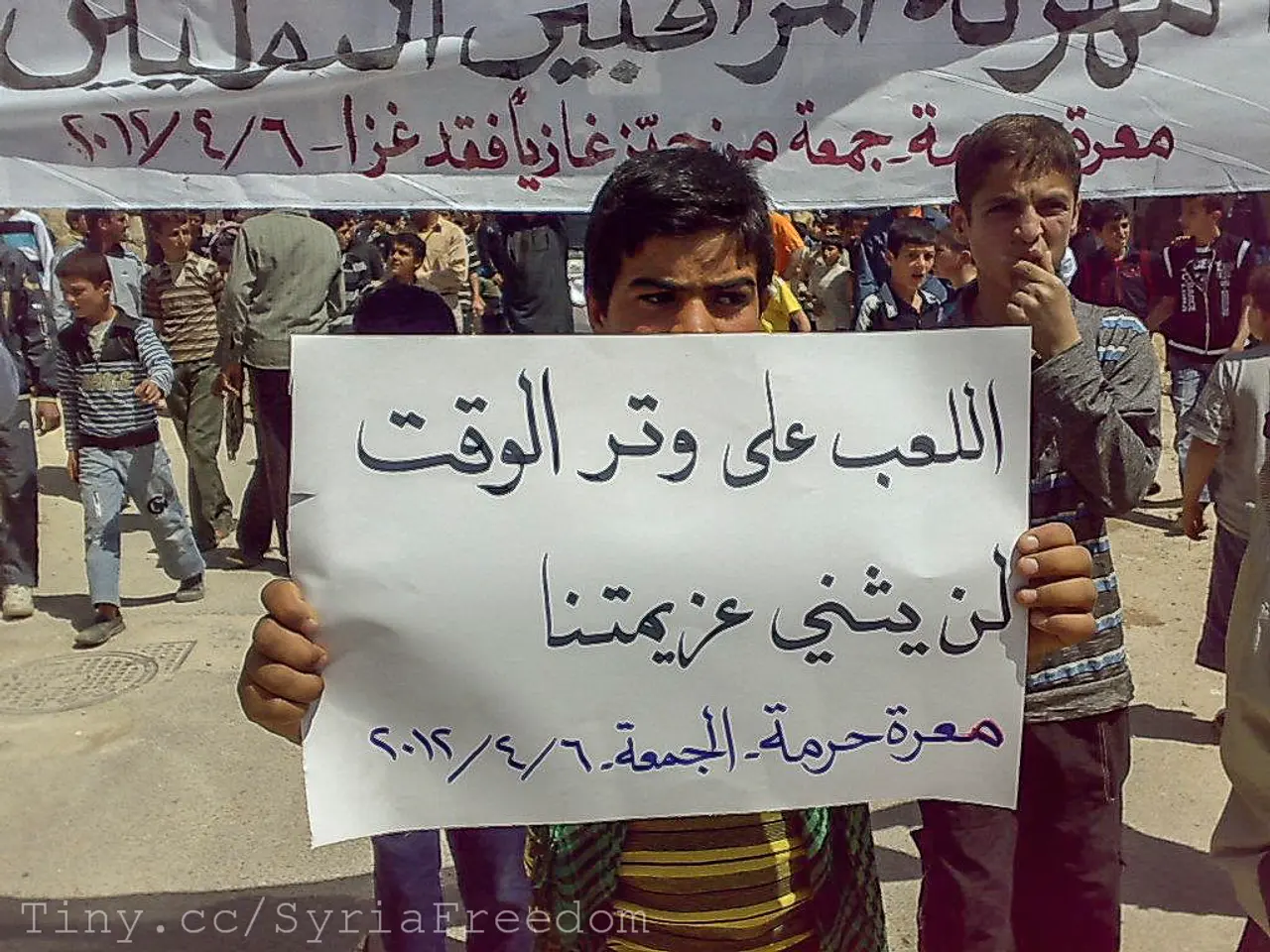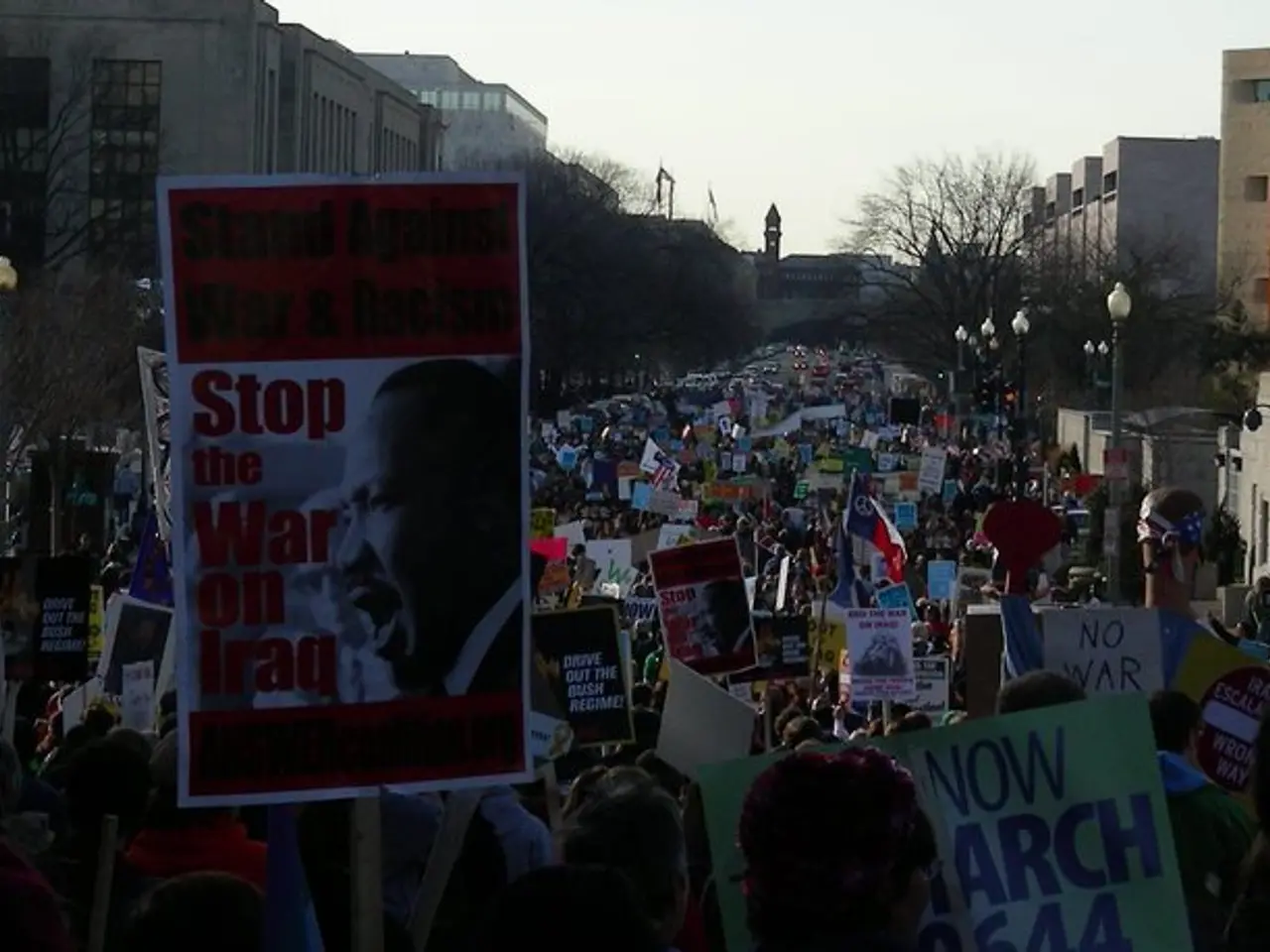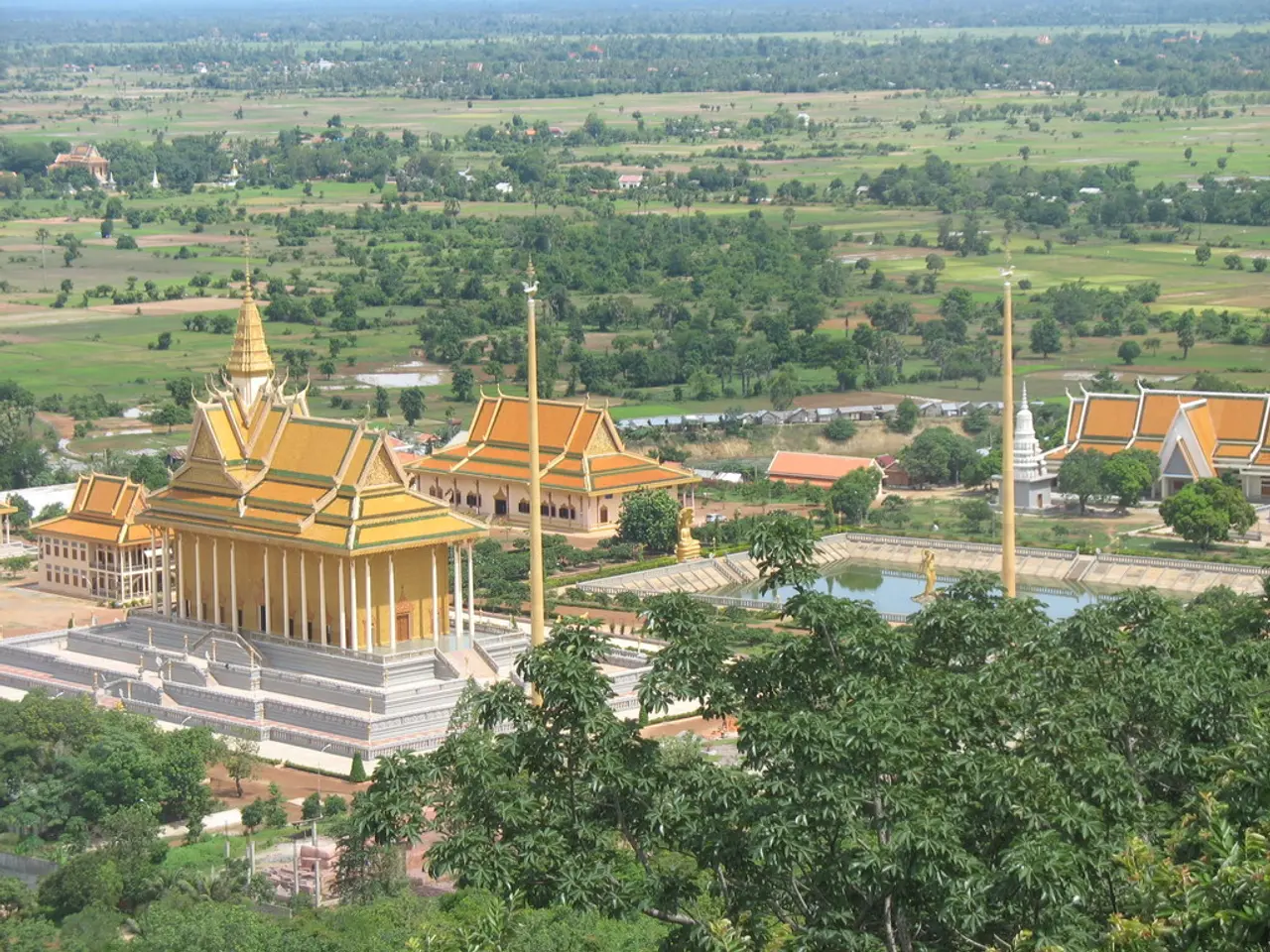Demonstrators Call for the Resignation of Thailand's Prime Minister
In the bustling heart of Bangkok, thousands of Thai citizens took to the streets, fueled by a growing discontent towards Prime Minister Paetongtarn Shinawatra. This mass demonstration echoed the tumultuous political climate brewing in the Kingdom, ignited by a controversial leaked phone call with none other than Hun Sen, the former Cambodian Prime Minister.
The source of the unrest stems from a recent border dispute between Thailand and Cambodia, ignited by an unfortunate skirmish on May 28. One Cambodian soldier lost his life in this minor, contentious area.
The incendiary phone conversation has been the rallying cry for the protesters, as it seems to reveal Paetongtarn's perceived attempts to curry favor with Hun Sen, the current Cambodian Senate president, in an attempt to lessen tensions at the border. The conversation also apparently contained criticism of an outspoken Thai army commander, stirring up strong emotions.
By early afternoon, the number of protesters swelled to approximately 6,000, as per a Bangkok police estimate. Even a downpour could not dampen the spirit of the demonstrators, who held national flags and placards around the Victory Monument in central Bangkok. As speakers took turns berating the government, the crowd chanted slogans, sang, and danced to nationalist tunes.
One participant, Tatchakorn Srisuwan, a 47-year-old guide from Surat Thani province, expressed his sentiments bluntly, stating, "We've never had a prime minister who's this weak. We don't want to invade anyone, but we want to assert that we're Thai and we wish to protect Thailand's sovereignty."
Familiar faces from the conservative, pro-royalist group known as the Yellow Shirts were also present, in accordance with their longstanding animosity towards Paetongtarn's father, former Thai Prime Minister Thaksin Shinawatra, whose relationship with Hun Sen is said to be close. These same Yellow Shirts helped topple the elected governments of Thaksin's sister, Yingluck Shinawatra, in 2014, and their presence at this rally only underscores the deep-rooted anger towards the Shinawatra family.
Hun Sen himself lastly stated that the border action by the Thai army marked a serious breach of Cambodia's sovereignty and territorial integrity, despite the country's goodwill in attempting to resolve the border issue.
This scandal has shaken apart Paetongtarn's fragile coalition government, causing her Pheu Thai Party to lose its biggest partner, the Bhumjaithai Party. The departing of the Bhumjaithai Party has left the 10-party coalition with only a single-digit majority, amounting to 255 seats out of the 500-seat house.
Paetongtarn stands accused of a serious ethical breach in connection to this phone call by the Office of the National Anti-Corruption Commission. The commission's secretary-general, Sarote Phuengrampan, confirmed ongoing investigations, albeit without providing a timeline for a decision. Paetongtarn has expressed her readiness to present evidence to support her case, claiming that there was nothing in the call that benefited her, and she did not cause any harm to the country.
As Thailand faces increased pressure for Paetongtarn's resignation and demands for a fresh general election, its political and diplomatic future remains uncertain. The escalating conflict with Cambodia, election fraud allegations, and the instability of the government continue to cast a shadow over the nation, keeping the citizens on edge.
- The ongoing political crisis in Thailand, marked by mass demonstrations against Prime Minister Paetongtarn Shinawatra, can be traced back to war-and-conflicts, specifically the border dispute between Thailand and Cambodia, which has sparked policy-and-legislation debates and fueled general news.
- The controversy surrounding the leaked phone call between Prime Minister Paetongtarn Shinawatra and Hun Sen, the former Cambodian Prime Minister, has not only ignited politics within Thailand but also strained the diplomatic relationship between the two countries, stirring up general news and influencing policy-and-legislation discussions, particularly related to war-and-conflicts.








